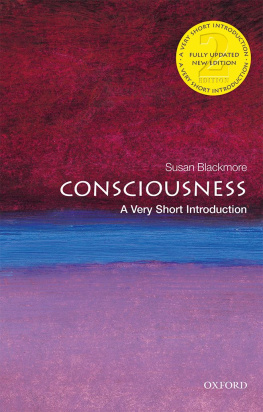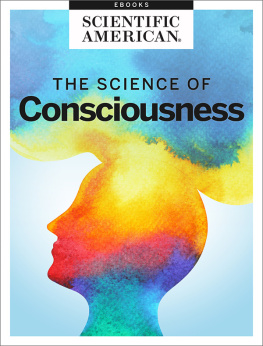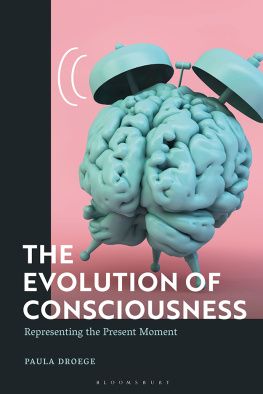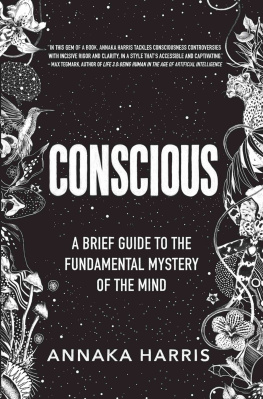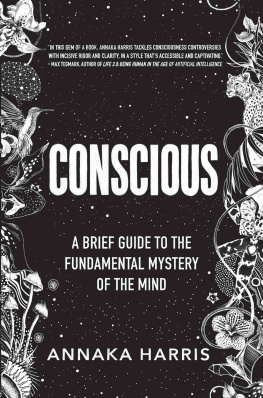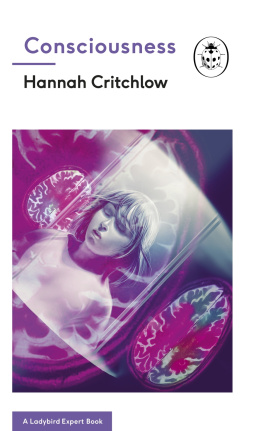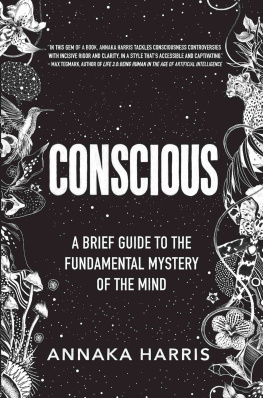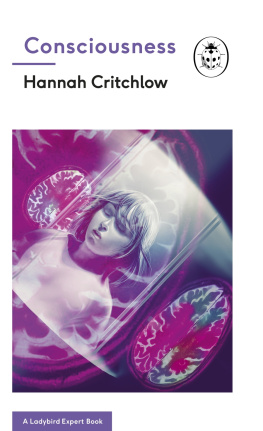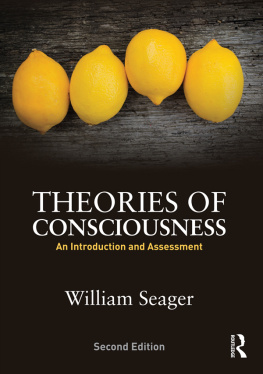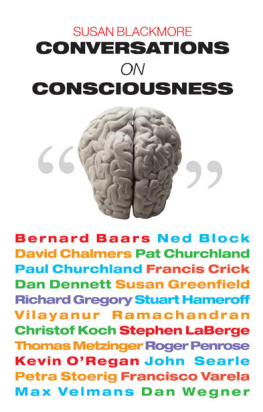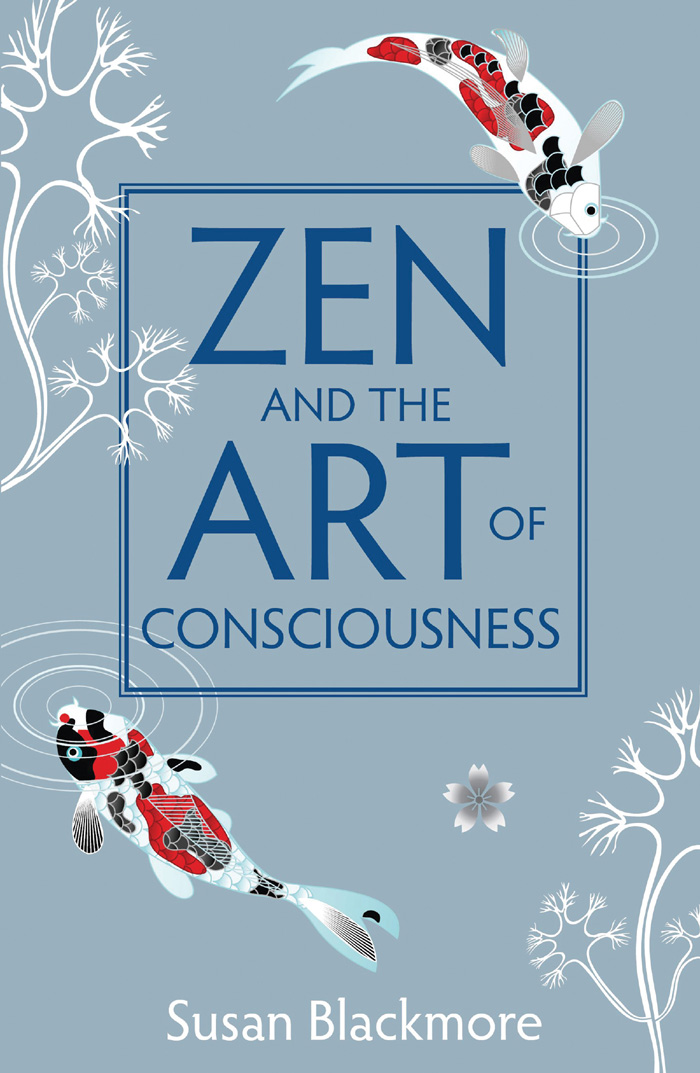ZEN AND THE ART
OF CONSCIOUSNESS
A remarkable first-person exploration of the nature of conscious human experience that uses traditional Buddhist meditation practices to address some of the most perplexing questions now confronting science. This highly original book will appeal to anyone who has ever asked the question: What on earth is going on here?
Stephen Batchelor, author of Buddhism without Beliefs
[Sue Blackmores] formidable intellect and clarity of approach is complemented by a warm and self-deprecating sense of humour.
The Psychologist
Combines the intelligence of the philosopher and the mindfulness of a Buddhist practitioner, with the rigour of a scientist. A thought-provoking book and essential for anyone wanting to answer the eternal questions, Who am I? and What is it all about?
Peter Fenwick, Senior Lecturer at the Institute of
Psychiatry and Consultant Neuropsychiatrist
at the Radcliffe Infirmary, Oxford
Should be compulsory reading for anyone in consciousness studies and certainly on every psychology course.
The Scientific and Medical Network
I do recommend this book both to Susan Blackmores many admirers and her detractors.
Journal of Consciousness Studies
Susan Blackmore, a pioneer in the emerging field of consciousness studies, shows how to explore consciousness from within. Drawing on years of meditation practice, she shows that it is questions - not answers - that lead to knowledge. A stimulating, humorous, and engaging read.
Jack Petranker, Buddhist teacher, scholar in
consciousness studies, and founder of the
Center for Creative Inquiry
Susan Blackmore is a psychologist and writer whose research on consciousness, memes, and anomalous experiences has been published in over sixty academic papers, as well as book chapters, reviews, and popular articles. She has a regular blog in the Guardian, and often appears on radio and television. Her book The Meme Machine (1999) has been translated into fifteen languages and more recent books include a textbook, Consciousness: An Introduction (2003), and Conversations on Consciousness (2005).
ZEN AND THE ART
OF CONSCIOUSNESS
Susan Blackmore

A Oneworld Book
This ebook edition published by Oneworld Publications, 2014
First published in hardcover by Oneworld Publications as
Ten Zen Questions, 2009
First published in trade paperback as
Zen and the Art of Consciousness, 2011
Reprinted in 2012, 2013
Copyright Susan Blackmore 2009
Illustrations Susan Blackmore 2009
All rights reserved
Copyright under Berne Convention
A CIP record for this title is available
from the British Library
ISBN 9781851687985
eISBN 9781780745916
Cover design by www.edwardbettison.com
Oneworld Publications
10 Bloomsbury Street
London WC1B 3SR
England
Stay up to date with the latest books,
special offers, and exclusive content from
Oneworld with our monthly newsletter
Sign up on our website
www.oneworld-publications.com
Contents
Acknowledgements
This book is an account of my struggles with some wonderful questions questions that are as much relevant to modern science as to ancient Zen tradition.
I could not have embarked on these adventures, or committed them to paper, without the help of many people.
My thanks go to Rob Anderson, Stephen Batchelor, Guy Claxton, Peter Coonradt, John Cook, Peter and Elizabeth Fenwick, Mike Finch, Adam Hart-Davis, Mike Luetchford, Jack Petranker, Emily Troscianko, and to Mandy Little, my agent, and Marsha Filion, my editor at Oneworld.
I am not sure whether my explanations will be of any use to anyone else. Naturally I wondered about this when deciding whether to write the book or not. But in the end the book seemed to want to write itself. I also concluded that the only way to find out would be to offer it up and see. Also, I know that I have been helped by reading the explorations of other people, such as the classic spiritual autobiographies of Hui-Neng and Hakuin, and the relatively modern stories in Philip Kapleaus The Three Pillars of Zen and Shen-Yengs Chan Comes West. Perhaps others will be inspired, amused, or otherwise helped by my struggles with some of the (to me) most interesting questions in the world.
Preface
Zen and the Art of Consciousness is the paperback edition of Ten Zen Questions. When the publisher first suggested the change of title I was shocked. Surely my book could not follow Pirsigs classic Zen and the Art of Motorcycle Maintenance which had influenced me so back in 1974? Then I realised that The Art of Consciousness is exactly what this book is about. My central claim is that if we are really going to understand our own subjective experiences we need both a science of consciousness (which is now progressing well) and something more. I have written about developing skills, practice, and training in inner exploration; the term art covers all of these.
Zen and the Art of Consciousness is my plea that we take seriously the art, skill, craft, and practices of consciousness in our quest to solve that great mystery how mind and brain can be united.

Falling into Zen
Thinking in not thinking
Thinking is fun. Indeed, you could say that thinking is the joy of my life, and my favourite hobby. But thinking clearly is difficult, and most of us are not really taught how to do it.
Science needs clear thinking, and scientists have to construct logical arguments, think critically, ask awkward questions, and find the flaws in other peoples arguments, but somehow they are expected to do all this without any kind of preliminary mental training. Certainly science courses do not begin with a session on calming the mind.
Perhaps this does not matter. If you are intelligent and quick witted it is possible to push away unwanted thoughts for a time, and to make great intellectual leaps or carry out painstaking experiments, even with a cluttered mind, but some questions demand a different approach. Among them are the ones I am asking here; questions that ask about the obvious What is this? Where is this?; those that turn back on themselves such as Who is asking the question?; or those that ask about the nature of the asking mind itself. All these require a clarity of mind that is not necessary for most scientific questions. They seem to require both the capacity to think and the capacity to refrain from thinking. They require the art of exploring consciousness as well as the science.
Refraining from thinking is precisely the skill that is taught in meditation. In many traditions too much thinking is discouraged, and with good reason, because people frequently grasp ideas intellectually but fail to put them into practice. They may understand a difficult concept, but not shift their way of seeing the world. So, for example, Buddhist teachers often punish their students for thinking too much. On the other hand, using meditation to think is not entirely unknown in Buddhist practice, and it is clear that the Buddha himself was a deep thinker. In any case, my aim here was not to achieve enlightenment, or to transcend suffering, but to explore ten difficult questions; and for this purpose I needed to combine thinking with not thinking.


